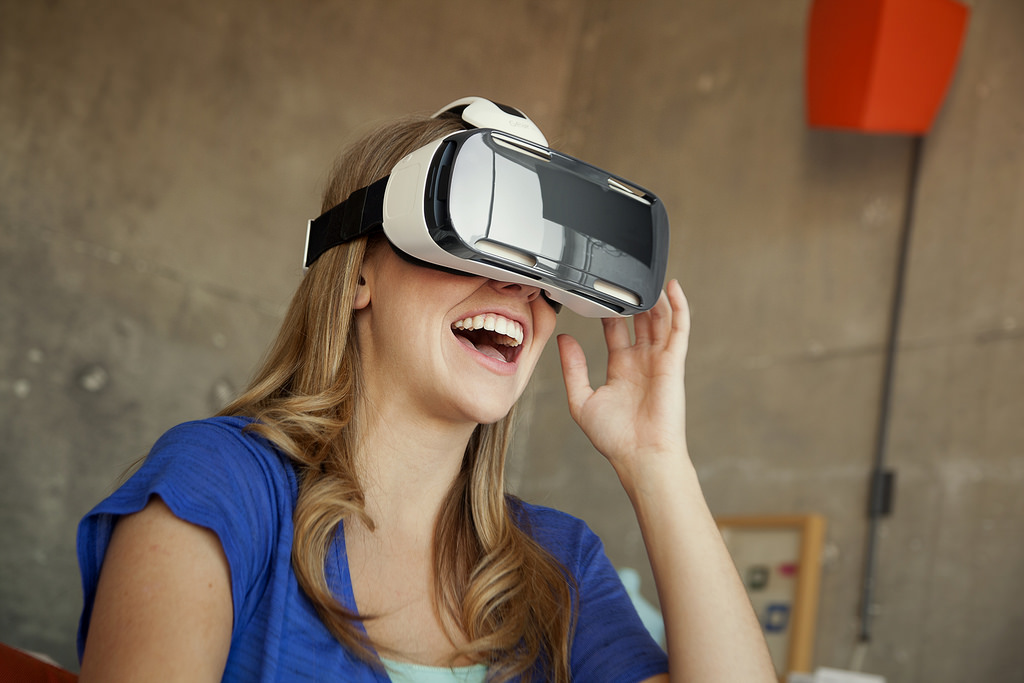 EMERGING TECH
EMERGING TECH
 EMERGING TECH
EMERGING TECH
 EMERGING TECH
EMERGING TECH
Hoping initially to reduce South Korea’s rising suicide rate, Samsung Electronics Co. Ltd., Gangnam Severance Hospital in South Korea and virtual reality content maker FNI Co. Ltd. joined forces today to develop VR tools to diagnose and treat mental illness.
The broader goal is to use health data and principals developed by Gangnam Severance to build out content with FNI that will use Samsung’s mobile devices and Gear VR headset to aid in the treatment of mental health. The trio of companies plan to commercialize the end product in 2018 for use in hospitals, dementia centers and schools.
Samsung said that the initial focus would be cognitive behavior therapies for suicide prevention and psychological assessment. Although South Korea and Japan both have some of the highest life expectancies in the world, both countries also have two of the highest rates of suicide.
According to the University of Pennsylvania, male suicide rates averaged 41.7 and 26.9 per 100,000 in South Korea and Japan, respectively. The rates for Korea have tripled in the past 25 years, said a report cited by The Jakarta Post, and recent years suicide has seen a dramatic increase amid women over 40.
The potential of VR for health care has been increasingly tapped for its potential to aid in the treatment and diagnosis of medical conditions. In March 2016, neurotechnology company SyncThink Inc. announced a VR headset with eye tracking technology that could be used to help diagnose the effects of traumatic brain injury in sports players. In May, Vivid Vision Inc. raised $2.2 million in funds to explore the use of VR as part of a treatment program for vision disorders such as amblyopia, also called “lazy eye.”
Samsung Australia recently announced its own foray into patient wellness using VR technology with its “distraction therapy” program for chemotherapy patients in conjunction with Sydney-based studio Start VR Pty Ltd. Using Gear VR headsets, patients undergoing chemotherapy can immerse themselves in VR experiences to provide them with positive experiences and take their minds off the discomfort and nausea that accompanies such treatments.
Virtual reality has been used to help treat mental illnesses now for decades, but with the consumer technology reducing in price and major developers shipping large numbers of headsets, the technology has become more accessible.
This recent explosion in the VR industry has allowed researchers from Swiss and British universities to work with London-based game company Glitchers Ltd. to produce a free VR game that helps gather data on dementia. The game “Sea Hero Quest VR” gathers data on how humans understand spatial environments and navigate them and researchers hope to use data to help better detect age-related decline in cognition.
Samsung did not detail exactly how its electronic products would be used to help mental health patients, but the company expects to bring its entire consumer health product line to bear. Included in the program would be the Gear VR headset, the Gear S3 smartwatch and Samsung’s S-Health app with its artificial intelligence smart assistant Bixby.
Gangnam Severance said it hopes to use Samsung’s ecosystem of devices as a platform to gather data and deliver better patient care to clients in need. Although the current product line is expected to be deployed by institutions, in-home treatment options are also planned for patients who cannot easily visit a doctors office or hospital room.
“Medical technology using virtual reality presents new alternatives to various psychological therapy and education,” said Kim Jae-jin, a deputy director at Gangnam Severance, told the Korea Biomedical Review.
The product is expected to include a service platform with a diagnostic VR kit for analyzing a patient’s psychological state, VR mental health applications for psychological evaluation, education and training. Samsung’s Bixby AI system is also expected to be used potentially as part of a diagnosis system to help doctors better understand patient needs.
Support our mission to keep content open and free by engaging with theCUBE community. Join theCUBE’s Alumni Trust Network, where technology leaders connect, share intelligence and create opportunities.
Founded by tech visionaries John Furrier and Dave Vellante, SiliconANGLE Media has built a dynamic ecosystem of industry-leading digital media brands that reach 15+ million elite tech professionals. Our new proprietary theCUBE AI Video Cloud is breaking ground in audience interaction, leveraging theCUBEai.com neural network to help technology companies make data-driven decisions and stay at the forefront of industry conversations.